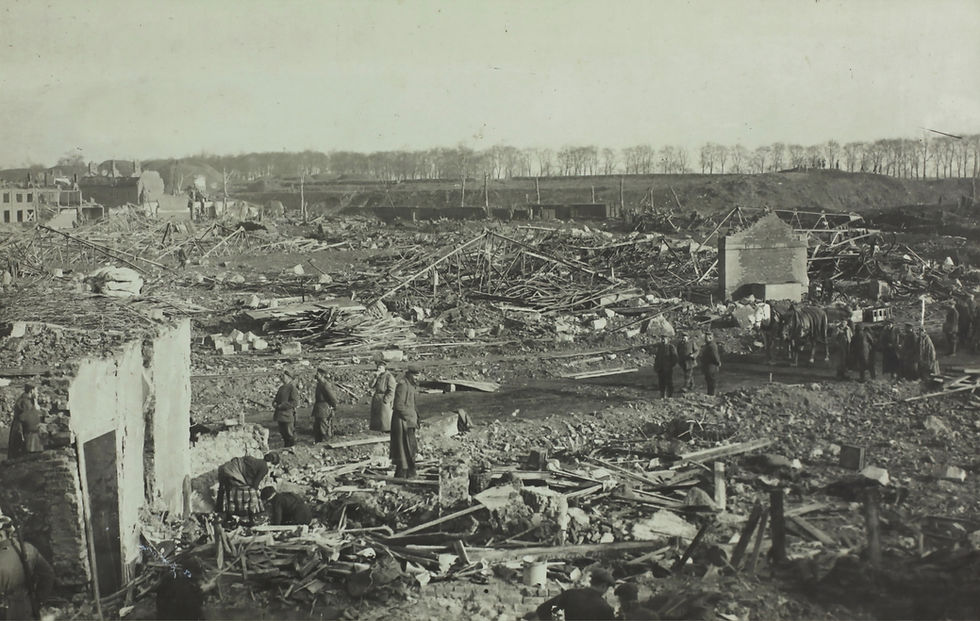The Healing Process: Uncovering the Economic Consequences of War

War has always been a devastating force, inflicting severe damage on nations and their people. Beyond the loss of lives and destruction of infrastructure, there lies an often overlooked consequence of war – the long-lasting economic impact. While the aftermath of conflict leaves wounds that take years, if not decades, to heal, it is crucial to understand the economic ramifications in order to effectively address and alleviate these consequences.
One significant economic consequence of war is the destruction of physical infrastructure. Bombed-out buildings, ruined roads, and decimated power grids leave cities in ruins. Rebuilding efforts require substantial financial resources, diverting funds that could have been invested in education, healthcare, or other economic development initiatives. Governments are burdened with enormous debt, leading to budget constraints and limited resources to invest in growth-promoting projects. Moreover, the cost of reconstructing essential facilities such as hospitals and schools often delays the restoration of crucial services, hindering the recovery of the affected population.
Another economic impact of war is the disruption of trade and commerce. Conflict disrupts supply chains, makes transportation routes unsafe, and creates an atmosphere of uncertainty and instability. Farmers struggle to cultivate crops, and manufacturers find it challenging to access raw materials, leading to skyrocketing prices and shortages of essential goods. Local businesses suffer, and unemployment rates rise as industries dependent on stable conditions are paralyzed. The loss of jobs further exacerbates poverty and hampers socio-economic progress, trapping affected communities in a vicious cycle of economic decline.
Foreign direct investment (FDI) is also significantly affected by prolonged periods of war. Investors are naturally reluctant to put their money in war-torn regions due to risks such as political instability, inadequate security, and a volatile business environment. As a result, these areas miss out on potential investments that could stimulate economic growth and create employment opportunities. The absence of such support slows down the post-war recovery process and prolongs the economic struggles faced by war-affected nations.
Additionally, war disrupts human capital development and education systems, which have severe long-term implications. Years of conflict force children out of schools, denying them the chance to receive a quality education. This not only hampers their personal development but also deprives nations of a skilled and educated workforce needed for economic progress. When the war ends, countries are left with a generation that lacks the necessary skills and knowledge to contribute to the rebuilding process. Consequently, the economic consequences of war become deeply entrenched and impact successive generations, making it even harder to recover and develop.
Understanding the economic consequences of war is essential for policymakers, as it highlights the need for targeted interventions and strategies to facilitate the healing process. Investments in infrastructure development, job creation, and education are crucial to foster economic recovery and alleviate the long-term impacts of conflict. Additionally, international support and foreign aid play a vital role in supporting post-war reconstruction efforts, complementing domestic resources and stimulating economic growth.
Efforts should focus on creating a favorable business environment, encouraging entrepreneurship, and providing financial assistance to help war-affected areas rebuild their economies. Furthermore, investing in education programs and vocational training can equip the population with the skills needed to participate in the reconstruction process actively.
In conclusion, the economic consequences of war are often overshadowed by the immediate losses and destruction. However, understanding these consequences is crucial to drive post-war recovery and break the cycle of poverty and instability. By prioritizing investment in infrastructure, trade, education, and human capital development, nations can heal their economic wounds and set themselves on the path towards sustainable growth and prosperity.


.png)
Comentarios